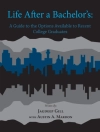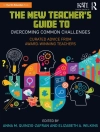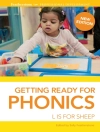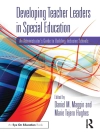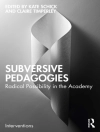The focus of this descriptive analysis is on the organizational framework of the largest Cultural Orientation (CO) project in the world implemented by the International Catholic Migration Commission (ICMC), which was contracted by the United States Department of State, Bureau for Refugee Programs, to conduct refugee resettlement education in Bata-an, the Republic of the Philippines for Indo-Chinese refugees bound for resettlement in the United States of America. From 1980 to 1990, ICMC/Philippines provided Cultural Orientation to a quarter of a million Indo-Chinese refugees. This inquiry establishes and clarifies what were some of the assumptions which contributed to the conceptualization of CO program instruction for adult Southeast Asian refugees intended to help the refugee achieve positive adjustment to life in the United States of America. The salient questions addressed in this research are: (1) What is overseas refugee education? (2) How is it constructed and conceptualized? (3) How is it practiced and implemented? and (4) Can the Philippines Refugee Processing Center serve as a model for preparing refugees to live in a Western multi-ethnic society? Postulated in the analysis are the strengths and weaknesses of the following elements staff training and development, educational theory, and refugee resettlement.
Hypothesis testing of selected program elements and replication design of the locus of the program leading to conceptualization of refugee education include: selected cases studies, surveys (statistical and quantitative), policy review and analysis, personal interviews and legal opinions.
The findings of the field-based research support the original hypothesis that certain operational concepts of American Cultural Orientation (CO) were “dysfunctional” and “incompatible” with the goals of preparing Southeast Asian refugees for successful adjustment to living in the United States of America. Moreover, the findings will be useful to U.S. Government officials, educators, researchers and refugee resettlement professionals who will consider the value of this study from the perspective of naturalized American citizen whose country of origin is the Republic of the Philippines.
Felipe Cofreros, Ph.D.
लेखक के बारे में
Felipe Cofreros Ph.D. spent more than twenty-five years of aggregate experience
in teaching Literacy, Adult Education, Pre-school, Elementary, High School,
College and the administration of instructional English as a Second Language
[ESL] services among Indo-Chinese refugees [Vietnamese, Lao, Khmer and
Hmong] in the International Catholic Migration Commission [ICMC], Philippine
Refugee Processing Center [PRPC] in Sabang, Morong, Bata-an, Philippines for a
decade.Felipe also taught English as a Second Language [ESL] in different
countries in Asia and North America. Presently, Felipe is one of the owners and the
Executive Program Director of the International Adult Day Care in Las Vegas,
Nevada, USA.
Felipe has authored more than a dozen of Children’s Picture Books with
comprehension questions for three years old and up geared for use in the preschool
classroom; A Handbook of Basic Art, Part 1 [Painting Processes in Playing
with Colors, Different Crayon Techniques]; A Handbook of Basic Art, Part 2 [Basic
Drawing, Painting and Making Crafts]; Let’s Weave [An ancient Hand Art of
Interlacing Two groups of Threads]; A Pre-school Math Workbook ‘Let’s Build Our
Math Skills Workbook for children ages three years old and up; Effective Ways To
Assess English Language Learners [For Intermediate and Advanced Levels]; One
Accord – an inspirational book of Bible promises; A Handbook of Writing Activities
for Intermediate and Advanced English Language Learners and English Workbook
1, 2 and 3 for the Elementary level.
Felipe graduated as a scholar from the University of San Agustin in Iloilo City,
Philippines with a Bachelor of Science in Elementary Education with specialization
in Social Studies and Art Education. He also studied Basic Latin, Spanish and
Theology courses in the Seminary of St. Augustine in Intramuros, Metropolitan
Manila, Philippines. He got his Master’s Degree in TESOL and Doctor of
Philosophy in Sociology from an on-line University in the USA. Felipe obtained
quite a number of certificates in different disciplines such as TESOL Teaching
Certificate Course, Lingua Edge, LCC. TESOL Teaching Training Systems West
Olympic Blvd., Beverly Hills, California, USA; Managing People for Maximum
Performance in John F. Kennedy School of Management, Harvard University,
Cambridge, Massachusetts, USA; The Roots of Learning: Society for Effective
Affective Learning in Brighton, England, United Kingdom.


